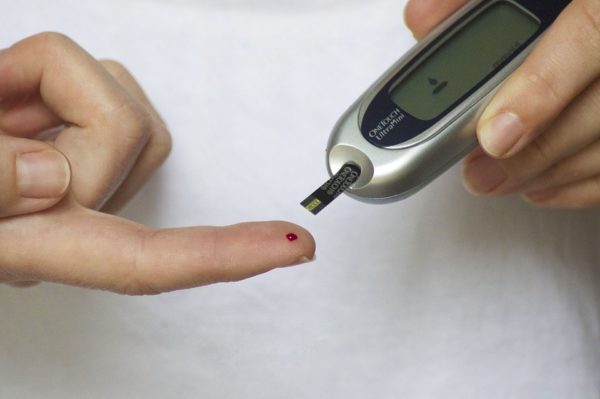Multi-tasking is a way of life for us women. For a majority of women around the world, daily life is such a bustle that amid all the action, what gets lost, is the need to take care of their own health. The number of crossed out periodic health check-ups on the calendar keeps rising till, unfortunately, urgent intervention becomes a need.
An ounce of prevention is worth a pound of cure.
For women over the age of 35, there are some common ailments they should keep an eye out for and some tests that they must get done regularly.
To make things more clear, we, at The Better India, spoke to Dr Vidushi Sawhney, Associate Consultant, Fortis Memorial Research Institute (FMRI), Gurgaon.
Common ailments:
1. Recurrent Urinary Tract Infection (UTI)
UTI is one of the most common infections a woman can contract. But it can also be confused with other ailments due to similar symptoms.
When UTI is recurring, one must expand the scope of the diagnosis. One has to undergo tests and examinations to rule out kidney stones and other structural abnormalities.
At times, a vaginal infection may coexist with UTI; hence we must differentiate between the two to treat them better. One requires a thorough pelvic examination to identify vaginal infections.
But most frequently, recurrent UTI indicates that the infection has not been fully cured. A lot of water, better hygiene and completing the full course of medication is key to curing the infection.
2. Low bone density
Women are at a higher risk of losing bone density as they age. Low bone density is sometimes called osteopenia. A person with low bone density may not necessarily develop osteoporosis. However, if the mass of the bone keeps decreasing then chances of developing osteoporosis becomes high.
Osteoporosis is a disease which causes bone-thinning with increased risks of breaking bones.
If one has osteoporosis, then one may break a bone even upon falling from a standing height.
Women over 35 need to regularly get their bone density tested to avoid getting caught unawares. Calcium supplements, Vitamin D3, regular exercise and early-morning sun exposure, are good ways to keep your bones healthy.
In some post-menopausal cases, the doctor may advise hormone replacement therapy.
3. PCOS
One of the most common conditions that affect women, more commonly in overweight women, is Poly Cystic Ovary Syndrome (PCOS). PCOS is a condition in which multiple small cysts are seen in the ovary on Ultrasonography. These cysts can cause irregular periods, hirsutism and infertility. Weight loss is of utmost importance to women with PCOS, along with lifestyle modification. The treatment is individualised for the patients.
Dr Vidushi also categorically states that PCOS is an ocean and there are varied symptoms and associated risks; hence it is difficult to give a standard answer on the treatment. The treatment is specific to each patient.
Women are advised to get the following tests done routinely once they turn 35.
• Fasting sugar
• Blood Pressure
• Lipid profile
• Liver function
• Kidney function
• Thyroid profile
• Vitamin D3 and Vitamin B12
• Urine routine.
• Pap smear once every three years.
• Self-breast examination
Get an ultrasound done if there are any menstrual problems or a history of ovarian cyst. Also, do get a breast examination done from time to time.
Tests to get done:
1. Pelvic examination and pap smear
This is a cervical cancer-screening test which can also detect pre-invasive stages. In this test, cervical cells are collected which are sent for microscopic examination. This test is usually advised at 21 years or within three years of being sexually active.
2. Bone density test
It is advisable for women above the age of 35 to get this test done once in 5 years. The bone mineral density test, i.e. the DEXA scan, involves a specialised X-ray, which screens your spine, hips, and wrists while you are lying flat on a table. It also measures your bone strength and assesses your risk of fracture.
3. Thyroid test
Many women complain of fatigue or feeling drained out on a daily basis. This, coupled with hair loss, brittle nails, or unexplained weight gain could be an indication of either having an underactive thyroid – hypothyroid or an overactive one – hyperthyroid. Women are more prone to this due to the significant hormonal changes one experiences during pregnancy, delivery, lactation, and menopause. It is advisable that women get this test done once in 5 years after hitting 35.
4. Diabetes screening
Diabetes is being called an epidemic, and thus, it is imperative that women get periodic blood tests done to rule out diabetes. This test should be done routinely, particularly if you have risk factors such as heart disease, blood pressure, strong family history of diabetes or BMI>25.
This test is administered after a 12-hour fasting period.
In cases of pre-diabetes and diabetes, an additional test, HbA1C that indicates the average blood sugar levels over the previous three months, is done. Annual testing is recommended further on.
5. Breast Self Examination
It is a screening method to detect early breast abnormalities and also breast cancer. It involves woman checking and analysing each breast for skin and/or nipple abnormalities, distortions, possible breast lumps or abnormal nipple discharge. Screening for breast cancer can be done with annual Mammography after the age of 40 years.
While we have taken utmost care in putting this article together, please consult your doctor before undergoing tests to tailor the investigations according to your needs.






Leave a reply